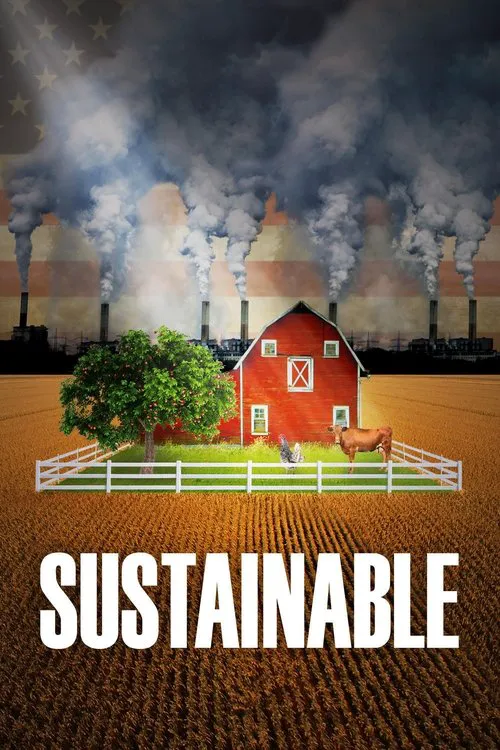Sustainable

Plot
Sustainable is a documentary film that explores the complexities of America's current food and farming system, highlighting the pressing issues of environmental degradation, social injustice, and economic instability. At the heart of the story is the remarkable figure of Joel Salatin, a stalwart farmer who has dedicated his life to developing a more sustainable and equitable approach to agriculture. The film begins by examining the far-reaching consequences of industrial agriculture, which has come to dominate the country's food landscape. Large-scale factory farms, reliant on artificial fertilizers and pesticides, have ravaged the nation's soil, water, and ecosystems. As a result, the quality of American produce has declined, and the once-thriving family farms that sustained our communities have all but disappeared. Against this bleak backdrop, Joel Salatin stands out as a beacon of hope. A seventh-generation farmer from Virginia, he has spent decades developing innovative methods of farming that prioritize animal welfare, environmental stewardship, and social responsibility. At his Polyface Farms, Joel has created a thriving ecosystem where animals graze on lush pastures, organic produce is grown with care, and local communities come together to build vibrant food systems. Through his tireless efforts, Joel has become a leading voice in the movement to revolutionize American agriculture. He has inspired countless farmers, chefs, and consumers to rethink the way we grow, distribute, and consume food. His commitment to regenerative practices has also sparked a movement to protect biodiversity, mitigate climate change, and promote social justice. As the film delves deeper into Joel's world, we meet a cast of characters who embody the same passion and dedication that drive him. These individuals – farmers, ranchers, activists, and chefs – share stories of their own struggles and triumphs in the pursuit of sustainability. Their stories humanize the challenges faced by farmers and highlight the interconnectedness of social, environmental, and economic issues in the food system. The film takes us on a journey through Joel's farm, where we witness the vibrant rhythms of regenerative agriculture in action. We see how Polyface Farms' signature practices – rotational grazing, cover cropping, and integrated pest management – create closed loops of growth and renewal that foster biodiversity and resilience. We also learn about the farm's innovative approaches to animal welfare, including the use of mobile chicken coops and electric fencing to protect pasturing animals from predators. One of the most compelling aspects of the film is its exploration of the personal costs and rewards of Joel's commitment to sustainability. We see firsthand how his family has been impacted by his work, from his children's struggles in school to his wife's pride in the farm's achievements. We also witness the deep connections that Joel forges with his customers, many of whom have come to see him as a trusted mentor and friend. As the narrative unfolds, the film highlights the broader implications of Joel's work. By building a more resilient food system, he is not only creating a more sustainable future but also fostering economic and social vitality in rural communities. Through his example, he is reminding us that food is more than just a commodity but a foundation for our well-being, our social bonds, and our very identity. The final act of the film brings the story full circle as Joel reflects on the transformative power of sustainable agriculture. He invites viewers to join him in imagining a world where every meal is a celebration of life, where every forkful of food tells a story of resilience, joy, and community. In a film that both educates and inspires, Sustainable reminds us that the future of our food system is not predetermined but is instead a reflection of our collective choices and values. Ultimately, the story of Joel Salatin and Polyface Farms serves as a testament to the power of human ingenuity, creativity, and determination. It shows that even in the face of daunting challenges, we can create a more just, equitable, and sustainable food system that nourishes both our bodies and our souls.
Reviews
Recommendations



